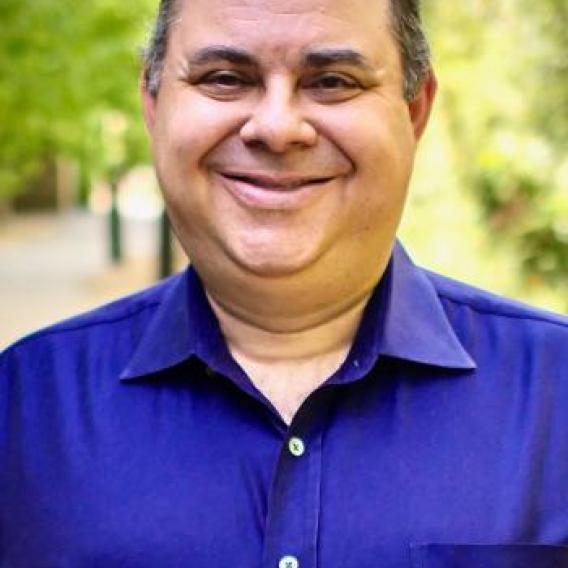Image

Jacob Ballon
Clinical Professor, Psychiatry and Behavioral Sciences
Fellowship: New York Presbyterian Columbia Dept of Psychology (2011) NY
M.D., University of California, San Diego (2005)
Residency, Stanford University, Department of Psychiatry and Behavioral Sciences (2009)
Schizophrenia Research Fellow, Columbia University (2011)
M.P.H., Columbia University, Health Policy and Management (2013)
Jacob S. Ballon, M.D., M.P.H. specializes in the treatment of people with psychotic disorders including schizophrenia. He is the Co-Director of the INSPIRE Clinic at Stanford which provides interdisciplinary care for people experiencing psychosis. He is also the co-Division Chief for General Adult Psychiatry and Psychology in the Department of Psychiatry. Dr. Ballon completed his residency at Stanford in 2009 and a Schizophrenia Research Fellowship at Columbia University in 2011.
Dr. Ballon maintains an interest in understanding the connections between the brain and the rest of the body as relates to the manifestation and treatment of people who experience psychosis. He works closely with a diverse group of researchers throughout the university and technology community to investigate these connections. He has active projects investigating the metabolic implications of schizophrenia and of psychiatric medication including the association of antipsychotic medication with weight gain and insulin resistance. He also is an active investigator in clinical trials of new medications for the treatment of schizophrenia and the associated side effects of antipsychotic mediations.
In understanding the whole-body impact of psychiatric illness, Dr. Ballon also has an active interest in the role that exercise can play in psychiatric treatment. He is the site-principal investigator of an NIMH-funded clinical trial looking at the use of aerobic exercise to improve cognition in people with schizophrenia.
INSPIRE is an innovative interdisciplinary client-centered resource providing respectful evidence-based care to support people to achieve meaningful recovery from psychosis through collaborative partnership with individuals and their families while advancing knowledge and training for a new generation of providers. With a recovery-oriented philosophy, the clinic provides an array of services including psychopharmacology, psychotherapy, and psychosocial evaluations. As a research clinic, they are focused on collaborating with multiple disciplines throughout the university to conduct clinical and basic science research including functional imaging, clinical trials, basic pathophysiology, and genetics.
Dr. Ballon maintains an interest in understanding the connections between the brain and the rest of the body as relates to the manifestation and treatment of people who experience psychosis. He works closely with a diverse group of researchers throughout the university and technology community to investigate these connections. He has active projects investigating the metabolic implications of schizophrenia and of psychiatric medication including the association of antipsychotic medication with weight gain and insulin resistance. He also is an active investigator in clinical trials of new medications for the treatment of schizophrenia and the associated side effects of antipsychotic mediations.
In understanding the whole-body impact of psychiatric illness, Dr. Ballon also has an active interest in the role that exercise can play in psychiatric treatment. He is the site-principal investigator of an NIMH-funded clinical trial looking at the use of aerobic exercise to improve cognition in people with schizophrenia.
INSPIRE is an innovative interdisciplinary client-centered resource providing respectful evidence-based care to support people to achieve meaningful recovery from psychosis through collaborative partnership with individuals and their families while advancing knowledge and training for a new generation of providers. With a recovery-oriented philosophy, the clinic provides an array of services including psychopharmacology, psychotherapy, and psychosocial evaluations. As a research clinic, they are focused on collaborating with multiple disciplines throughout the university to conduct clinical and basic science research including functional imaging, clinical trials, basic pathophysiology, and genetics.